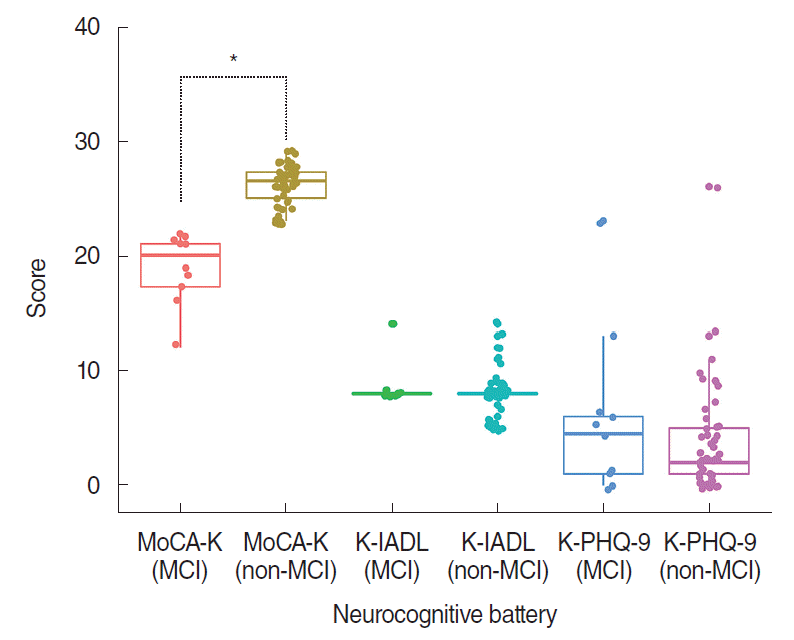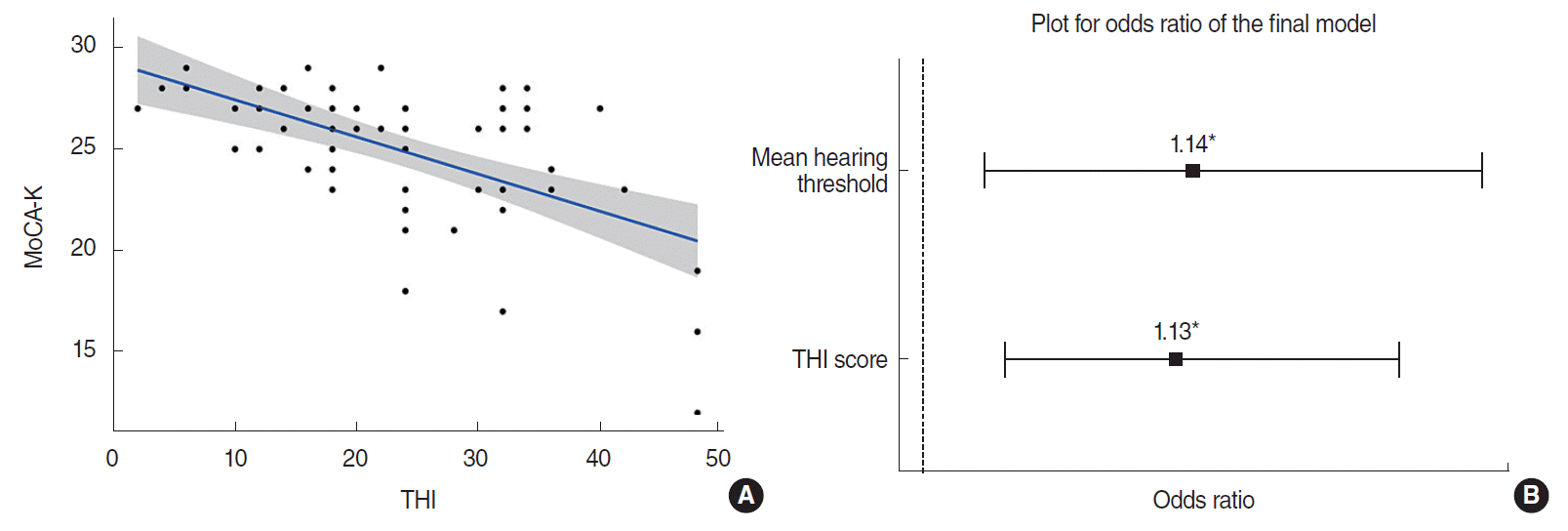1. Jastreboff PJ. Phantom auditory perception (tinnitus): mechanisms of generation and perception. Neurosci Res. 1990; Aug. 8(4):221–54.

2. Lee SY, Nam DW, Koo JW, De Ridder D, Vanneste S, Song JJ. No auditory experience, no tinnitus: lessons from subjects with congenital- and acquired single-sided deafness. Hear Res. 2017; Oct. 354:9–15.
3. Kim SH, Jang JH, Lee SY, Han JJ, Koo JW, Vanneste S, et al. Neural substrates predicting short-term improvement of tinnitus loudness and distress after modified tinnitus retraining therapy. Sci Rep. 2016; Jul. 6:29140.

4. Song JJ, Vanneste S, De Ridder D. Dysfunctional noise cancelling of the rostral anterior cingulate cortex in tinnitus patients. PLoS One. 2015; Apr. 10(4):e0123538.

5. Andersson G, McKenna L. The role of cognition in tinnitus. Acta Otolaryngol Suppl. 2006; Dec. (556):39–43.

6. Mohamad N, Hoare DJ, Hall DA. The consequences of tinnitus and tinnitus severity on cognition: a review of the behavioural evidence. Hear Res. 2016; Feb. 332:199–209.

7. Pace E, Zhang J. Noise-induced tinnitus using individualized gap detection analysis and its relationship with hyperacusis, anxiety, and spatial cognition. PLoS One. 2013; Sep. 8(9):e75011.

8. Tegg-Quinn S, Bennett RJ, Eikelboom RH, Baguley DM. The impact of tinnitus upon cognition in adults: a systematic review. Int J Audiol. 2016; Oct. 55(10):533–40.

9. Trevis KJ, McLachlan NM, Wilson SJ. Cognitive mechanisms in chronic tinnitus: psychological markers of a failure to switch attention. Front Psychol. 2016; Aug. 7:1262.

10. Zarenoe R, Hallgren M, Andersson G, Ledin T. Working memory, sleep, and hearing problems in patients with tinnitus and hearing loss fitted with hearing aids. J Am Acad Audiol. 2017; Feb. 28(2):141–51.

11. Rossiter S, Stevens C, Walker G. Tinnitus and its effect on working memory and attention. J Speech Lang Hear Res. 2006; Feb. 49(1):150–60.

12. Das SK, Wineland A, Kallogjeri D, Piccirillo JF. Cognitive speed as an objective measure of tinnitus. Laryngoscope. 2012; Nov. 122(11):2533–8.

13. Vanneste S, Faber M, Langguth B, De Ridder D. The neural correlates of cognitive dysfunction in phantom sounds. Brain Res. 2016; Jul. 1642:170–9.

14. Wang Y, Zhang JN, Hu W, Li JJ, Zhou JX, Zhang JP, et al. The characteristics of cognitive impairment in subjective chronic tinnitus. Brain Behav. 2018; Jan. 8(3):e00918.

15. Gudwani S, Munjal SK, Panda NK, Kohli A. Association of chronic subjective tinnitus with neuro- cognitive performance. Int Tinnitus J. 2017; Dec. 21(2):90–7.

16. Snowden JS. Mild cognitive impairment: aging to Alzheimer’s disease. Brain. 2004; Jan. 127(1):231–3.

17. Petersen RC. Mild cognitive impairment as a diagnostic entity. J Intern Med. 2004; Sep. 256(3):183–94.

18. Pittman AL, Stelmachowicz PG. Hearing loss in children and adults: audiometric configuration, asymmetry, and progression. Ear Hear. 2003; Jun. 24(3):198–205.

19. Lee JY, Lee DW, Cho SJ, Na DL, Jeon HJ, Kim SK, et al. Brief screening for mild cognitive impairment in elderly outpatient clinic: validation of the Korean version of the Montreal Cognitive Assessment. J Geriatr Psychiatry Neurol. 2008; Jun. 21(2):104–10.

20. Kroenke K, Spitzer RL. The PHQ-9: a new depression diagnostic and severity measure. Psychiatr Ann. 2002; 32(9):509–15.

21. An JY, Seo ER, Lim KH, Shin JH, Kim JB. Standardization of the Korean version of screening tool for depression (Patient Health Questionnaire-9, PHQ-9). J Korean Soc Biol Ther Psychiatry. 2013; Jun. 19(1):47–56.
22. Hwang IH, Oh DH. Questionnaires for Assessing Stress and Mental Health. Hanyang Med Rev. 2014; May. 34(2):91–5.

23. Kang SJ, Choi SH, Lee BH, Kwon JC, Na DL, Han SH, et al. The reliability and validity of the Korean Instrumental Activities of Daily Living (K-IADL). J Korean Neurol Assoc. 2002; Jan. 20(1):8–14.
24. Petersen RC. Clinical practice: mild cognitive impairment. N Engl J Med. 2011; Jun. 364(23):2227–34.
25. Trevis KJ, McLachlan NM, Wilson SJ. A systematic review and meta-analysis of psychological functioning in chronic tinnitus. Clin Psychol Rev. 2018; Mar. 60:62–86.

26. Oh E, Lee AY. Mild cognitive impairment. J Korean Neurol Assoc. 2016; Aug. 34(3):167–75.

27. Flicker C, Ferris SH, Reisberg B. Mild cognitive impairment in the elderly: predictors of dementia. Neurology. 1991; Jul. 41(7):1006–9.

28. Dag E, Bayar Muluk N, Karabicak H, Kursat Arikan O, Turkel Y. Cognitive evaluation and quality of life assessment in patients with subjective tinnitus. Acta Neurol Taiwan. 2016; Mar. 25(1):1–9.
29. Andersson G. Psychological aspects of tinnitus and the application of cognitive-behavioral therapy. Clin Psychol Rev. 2002; Sep. 22(7):977–90.

30. Lin FR, Metter EJ, O’Brien RJ, Resnick SM, Zonderman AB, Ferrucci L. Hearing loss and incident dementia. Arch Neurol. 2011; Feb. 68(2):214–20.

31. Vanneste S, De Ridder D. Deafferentation-based pathophysiological differences in phantom sound: tinnitus with and without hearing loss. Neuroimage. 2016; Apr. 129:80–94.

32. Georgiewa P, Klapp BF, Fischer F, Reisshauer A, Juckel G, Frommer J, et al. An integrative model of developing tinnitus based on recent neurobiological findings. Med Hypotheses. 2006; 66(3):592–600.







 PDF
PDF Citation
Citation Print
Print



 XML Download
XML Download